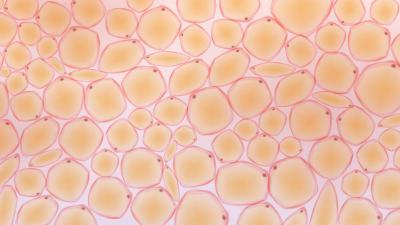Plant-Based Diet Better at Reducing Inflammatory Dietary Compounds Than Diet With Animal Products

WASHINGTON, D.C.—Eating a plant-based diet reduces inflammatory dietary advanced glycation end-products (AGEs) by 79%, compared to a 15% reduction for a diet that includes meat and dairy products, according to a new study by researchers with the Physicians Committee for Responsible Medicine published in Obesity Science & Practice. The decrease in AGEs was associated with an average weight loss of 14 pounds and improved insulin sensitivity.
“Simply swapping fatty meat and dairy products for a low-fat plant-based diet led to a significant decrease in advanced glycation end-products—inflammatory compounds found to a greater degree in animal products than plants,” says lead study author Hana Kahleova, MD, PhD, director of clinical research at the Physicians Committee for Responsible Medicine. “The decrease in AGEs was also associated with weight loss and improved insulin sensitivity.”
AGEs are compounds that are formed in the bloodstream when proteins or fats combine with glucose. AGEs cause inflammation and oxidative stress, which eventually lead to chronic diseases, including type 2 diabetes and cardiovascular disease.
AGEs may be ingested through the diet, and animal products are generally higher in AGEs than plant foods. AGEs are also formed during normal metabolism and are formed at an increased rate when a person has metabolic syndrome—high blood sugar, high cholesterol, high blood pressure, and insulin resistance.
In the study, 244 participants who were overweight were randomly assigned to an intervention group, which ate a low-fat plant-based diet, or control group, which made no dietary changes, for 16 weeks.
At the beginning and end of the study, body composition was measured and insulin sensitivity was assessed. Dietary AGEs were calculated based on self-reported dietary intake records. A dietary AGEs database was used to estimate dietary AGEs intake.
Dietary AGEs decreased by 79% in the plant-based group, compared to 15% in the control group. About 55% of the reduction of the dietary AGEs in the plant-based group was attributable to the reduction in meat intake, 26% to decreased dairy intake, and 15% to decreased consumption of added fats. The reduction in white meat consumption made the biggest difference in dietary AGEs coming from meat (59%), followed by processed meat (27%).
Body weight decreased by about 14 pounds (6.4 kg) in the plant-based group, compared with about 1 pound (0.5 kg) in the control group, largely due to a reduction in fat mass, notably visceral fat. Insulin sensitivity improved in the intervention group.
The authors say that these findings support prior observations of the favorable effects of low-AGEs diets on weight, body fat, and insulin resistance.
Media Contact
Michael Keevican
202-527-7367
mkeevican[at]pcrm.org
Founded in 1985, the Physicians Committee for Responsible Medicine is a nonprofit organization that promotes preventive medicine, conducts clinical research, and encourages higher standards for ethics and effectiveness in education and research.








